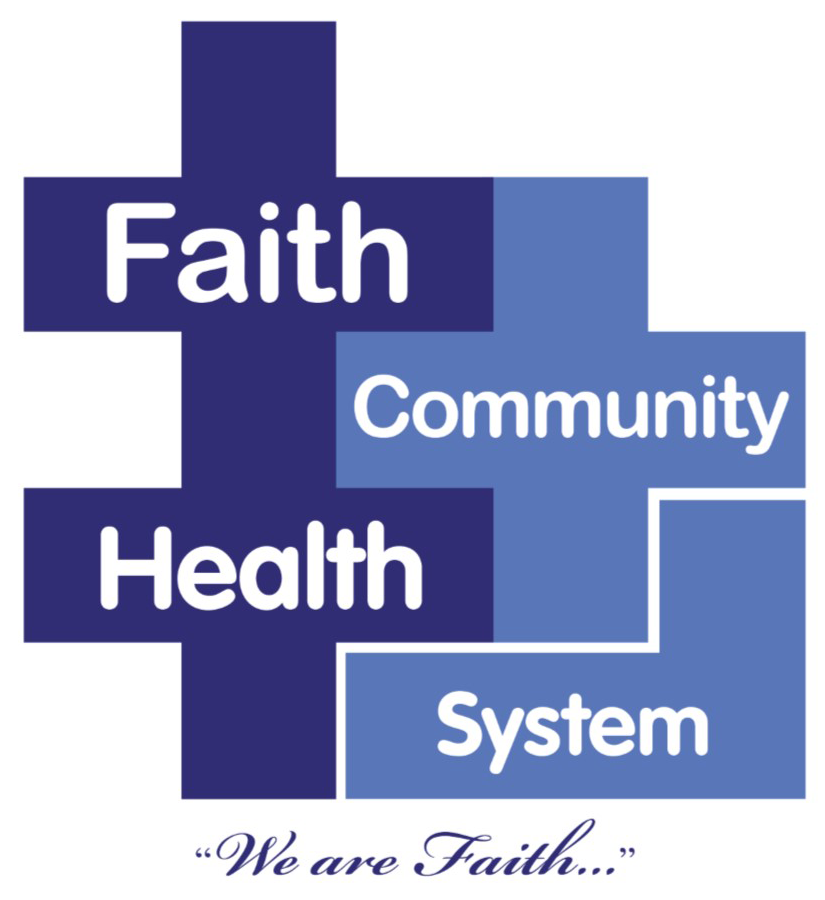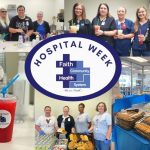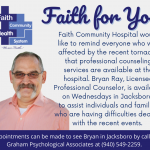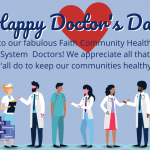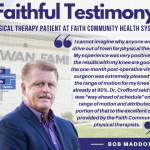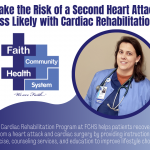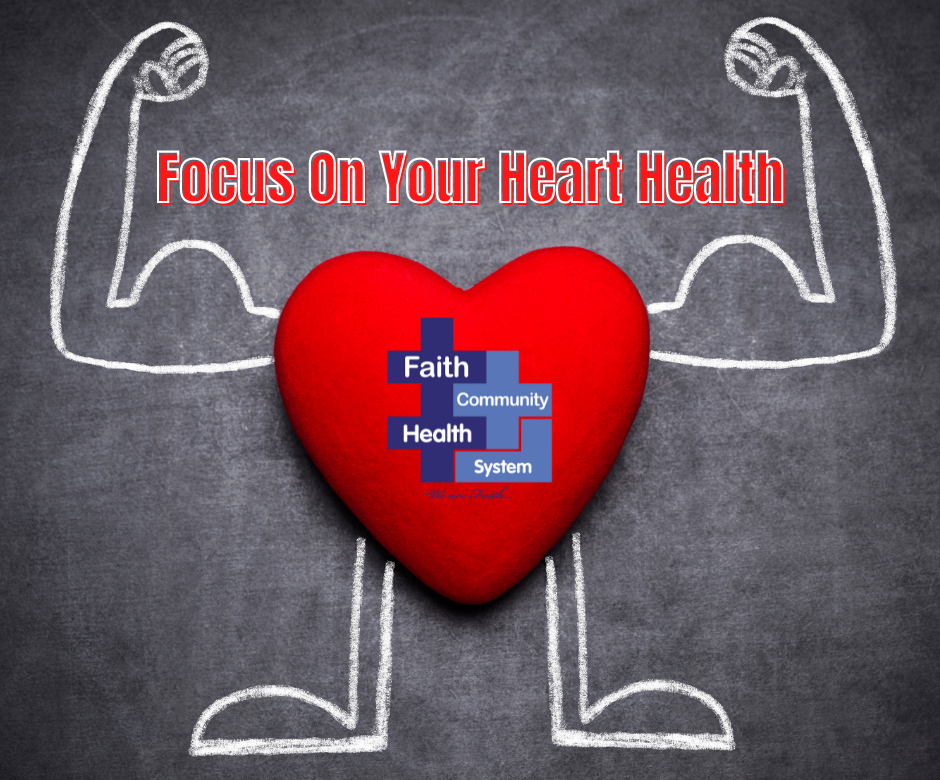
FCHS urges residents to monitor heart disease during American Heart Month.
When it comes to the heart, February is the month that can’t be beat!
In addition to the month that brings Valentine’s Day, February is also American Heart month. This is an annual awareness campaign to highlight the dangers of cardiovascular disease and pinpoint some of the actions that can be taken to guard against it. Most American deaths are due to cardiovascular disease. About 660,000 people in this country die of some form of heart disease each year. That amounts to about 1 in 4 Americans.
“We know that heart disease kills more people in America than anything else and knowing more about this pervasive disease and understanding how to prevent complications is ever crucial,” says Cara Epps, Director of Respiratory Therapy. Staying on top of blood pressure, keeping cholesterol levels low, not smoking, getting regular exercise, eliminating as much stress as possible and eating healthy foods are all ways to combat cardiovascular disease, Epps points out.
According to the American Heart Association (AHA), more than 1 in 3 adults, or 85.6 million Americans, live with one or more types of cardiovascular disease. As stated earlier, heart disease is the first leading causes of death in the nation. And stroke ranks at number five. “If you don’t know your risk level now is a good time to find out,” Epps noted.
There are four major risk factors for cardiovascular disease, all of which may be controlled to a large extent. According to healthcare providers, high blood pressure, high cholesterol, smoking and lack of regular exercise are all deadly elements that can contribute to heart complications.
Identifying possible complications that could lead to a cardiovascular episode begins with a thorough physical exam of your weight, blood pressure and cardiovascular fitness. A healthcare provider can advise whether you might benefit from an electrocardiogram, a test performed at FCHS that allows physicians to take a closer look at your heart’s performance.
If you are found to be at risk for heart disease, your medical provider can supply you with the tools needed to fight back. Prescribed medication, a medically directed diet, and an exercise program are the usual options prescribed to improve your health.
Those who are physically active are twice as likely to prevent a heart attack. The AHA stresses that exercise is beneficial in the long run as it decreases the risk of developing cardiovascular disease and other medical related illnesses.
Physical activity can improve the condition of your heart and lungs. Exercise routines should be brisk enough to raise your heart and breathing rates, sustained for at least 30 minutes without interruption and repeated at least three to five times per week.
For individuals who have recently experienced a cardiac episode, rehabilitation plays an important role in regaining strength. The cardiac rehabilitation program at Faith Community Hospital in Jacksboro provides a convenient setting in which to talk with professionals who can guide patients through the rehabilitation process.
“The heart is a pretty resilient organ,” Epps observed. “But sometimes it needs a specialized program to get it back to functioning properly.” When looking at ways to maintain good heart health, a comprehensive rehabilitation program can improve your recovery and potentially be a lifesaver,” she added. Cardiac rehabilitation programs have been shown to reduce the number of heart-related deaths by 30 percent. When combined with a dramatic change in overall lifestyle, your recovery can really create a new sense of life.
While cardiopulmonary rehabilitation programs are personalized for each patient, based on their condition, many patients attend three sessions a week for 12 weeks. Remember that physical activity is important to regaining heart strength. Exercise programs are conducted under carefully monitored conditions to ensure that a safe increase in strength is developed.
For more information about cardiovascular disease and whether the cardiopulmonary rehabilitation program at FCHS is right for you, talk with your cardiologist or primary care provider. You may also call the FCHS Cardiopulmonary Rehabilitation Department at 940-216-2258 or visit www.fchtexas.com.
